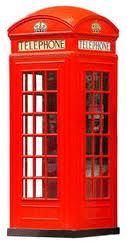UNIDAD 3. INGLÉS 2º ESO.

UNIDAD 3. WHAT ARE YOU DOING?
Vocabulary
Search: build, buy, climb, cook, dance, do, draw, drink, drive, eat, enjoy, fly, get up, go, hear, jump, know, learn, leave, lie, like, listen, look, love, make, meet, paint, play, push, rain, read, ride, run, see, sell, sing, sit, sleep, speak, spend, stand, stay, stop, talk, teach, tell, think, try, understand, use, wait, walk, want, watch, work, write.
Activities
1.- Vocabulary verbs.
2.- Daily routines.
Functions
Abilities: can, can't.
Activities
1.- Complete the dialogue with the words below.
Can – want – can't – course – play – learn.
Brad: What do you _________ to do now?
John: Let's go and __________ pool. ____________ you play pool, Brad?
Brad: No, I _________ . But I can _______ .
Rosa: Of _________ you can.
2.- Complete the dialogue with the phrases below.
I also spend hours surfing the Internet.
You're just like my brother!
I prefer sports.
What do you like doing?
Brad: ________________________________
Rosa: I love working on the computer. _______________________
Brad: ________________________ . I like soccer -football to you- and basketball.
Rosa: __________________________________
Grammar
The Present Continuous
AFFIRMATIVE | NEGATIVE | INTERROGATIVE |
| LONG FORM | SHORT FORM | LONG FORM | SHORT FORM |
|
|---|---|---|---|---|
I am eating | I'm eating | I am not eating | I'm not eating | Am I eating? |
You are eating | You're eating | You are not eating | You aren't eating | Are you eating? |
He is eating | He's eating | He is not eating | He isn't eating | Is he eating? |
She is eating | She's eating | She is not eating | She isn't eating | Is she eating? |
It is eating | It's eating | It is not eating | It isn't eating | Is it eating? |
We are eating | We're eating | We are not eating | We aren't eating | Are we eating? |
You are eating | You're eating | You are not eating | You aren't eating | Are you eating? |
They are eating | They're eating | They are not eating | They aren't eating | Are they eating? |
We use the Present Continuous to talk about things that are happening now.
Remember: Some verbs do not take the Present Continuous form. These are stative verbs. (want, like, understand, love, hear...).
Spelling
write = writing
sit = sitting
try = trying
lie = lying
die = dying
Time Expressions
now, right now, at the moment, today, this week / month / year, etc.
Activities.
1.- Write in the Present Continuous.
2.- Choose the correct answer.
Pamela is riding / are riding her bike to school today.
The boys is going / are going camping now.
My father isn't cooking / are cooking dinner now.
Is / Are the children playing tennis?
I am reading / is reading a great book at the moment.
Mum is cleaning / are cleaning the kitchen now.
My friends isn't having / aren't having a party at the moment.
Am / Is I studying for a test this week?
Listen! The birds is singing / are singing in the trees.
Ned is running / am running in the park right now.
3.- The Present Continuous. Form: Exercise 1.
4.- The Present Continuous. Form: Exercise 2.
5.- The Present Continuous. Form: Exercise 3.
Contrast of Present Continuous and Present Simple.
We use the Present Continuous to talk about things that are happening now.
We use the Present Simple to talk about regular habits and actions.
Activities.
6.- Complete the sentences with the correct time expressions.
I have breakfast every day / at the moment.
He is working at home now / every day.
She's playing basketball on Sundays / at the moment.
He sees his grandparents every week / now.
7.- Write these sentences in Present Continuous or Present Simple.
8.- Present Simple or Continuous. Contrast: Exercise 1.
9.- Present Simple or Continuous. Contrast: Exercise 2.
10.- Choose the correct form of the verb.
Shasta plays / is playing basketball every Monday.
John looks / is looking at an aeroplane now.
Rosa learns / is learning a new computer program at the moment.
0 comentarios